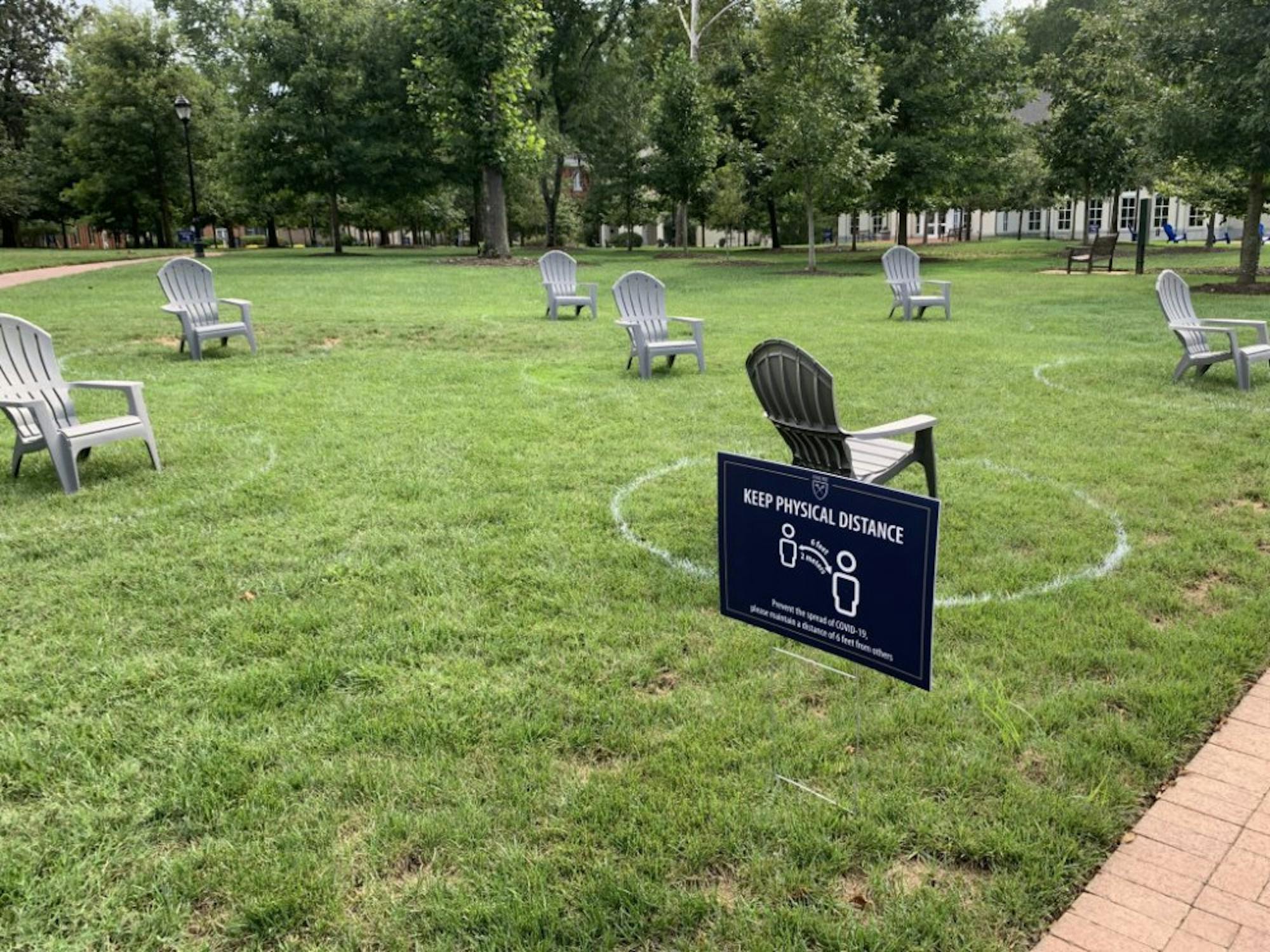In lieu of a spring break, March 15 marked Emory University’s first recommended “no assignment week” and March 16 marked the second rest day since remote learning began in March 2020. While some students greeted the week with open arms, ready to embrace the academic hiatus, others found the week’s purpose unavailing.
“It really feels like a stressful time,” Ryan Gibbons (24C) said. “We spend most of our weekends working, we spend most of our free time working and having the rest days really hasn’t changed that at all.”
Following students’ concerns regarding the lack of breaks and mental health struggles last fall, this semester the University implemented course-free rest days on Feb. 17, March 16 and April 14.
To further reduce student stress following the cancellation of spring break, the Emory College Faculty Senate passed a resolution recommending professors include a “no assignment week” in their class syllabus from March 15 to 19. While the resolution is non-binding and allows synchronous class lectures, it recommended that faculty not assign any work or assessments.

Although multiple students who spoke to the Wheel said their professors were accommodating during no assignment week, many still dealt with a constant barrage of asynchronous work, assignments and Zoom classes.
With her last college spring break gone, Adaora Ntukogu (21C) spent the rest day working on a physics assignment, one of the multiple assignments she had to complete later that week.
“I feel like there’s never a time when I don’t have any assignments due,” Ntukogu said.
Oxford Student Government Association President Eleanor Liu (21Ox) noted that on top of Zoom fatigue, students on campus felt “pandemic fatigue.” Liu attributes this to the absence of shuttle rides between the Oxford and Atlanta campuses — a typical weekend favorite shut down due to public health concerns.
Oxford students’ fatigue grew following classmate Yide “Dave” Zhang’s death, which Liu stated was especially hard given that the campus is only at about half capacity.
“When you lose someone on a campus that small, you feel it, even if you’ve only seen them once or twice in passing,” Liu said.
Although the University canceled a formal spring break, some students spent the week logging onto Zoom classes from a spring break-like location. Dynasti DeGouville (22C) spent the week jet skiing in St. Augustine, Florida, enjoying her first chance at relaxation in months.

During a regular week, DeGouville stated she has “little to none” in terms of time outside of academics.
“It gets to the point where I feel like taking breaks to do necessary things, such as eating or showering or talking to my family, is a waste of time,” DeGouville said.
Eduardo Barquet Arrambide (20Ox, 22C) echoed DeGouville’s sentiments, saying that the “weeks leading up to [no assignment week] were not worth it since everyone crammed tests beforehand.”
While Arrambide spent the rest day getting a well-needed break, he noted that on average, he only has time for four hours of non-academic related activities each week.
Students are not the only ones feeling these strains; professors have also cited reduced productivity levels as a byproduct of Zoom and work fatigue.
“I think students, myself included, are overwhelmed, which is often seen through reduced energy, lower engagement and difficulty in managing time efficiently,” Lecturer in Chemistry at Oxford College Deepika Das said.
Multiple students who spoke to the Wheel expressed adjusting what qualifies as a “rest day” would help solve the continued stress they felt during the no assignment week.
Gibbons suggested that the University implement a mandatory no assignment week, even if that week was shortened from five days to three days. Noting that “asynchronous work was tough” during no assignment week, Gibbons said such a week would remove the stress and amount of work he had during no assignment week.
“I wish [administration] would’ve found ways to integrate the rest days and no assignment week, because I don’t feel any more rested than I did last week at all,” Gibbons said.
Ntukogu and DeGouville echoed Gibbons' sentiments, adding that they wish the University would implement two consecutive rest days.
Das urged students to reach out to professors about their “issues, concerns and struggles.” She also suggested that students form study groups or have regular check-ins with their professors, a strategy which has helped her students reduce the “disconnect and the stress of working and feeling alone.”
“It is uncharted territory for faculty as well,” Das said. “Student feedback would help them make better choices.”









